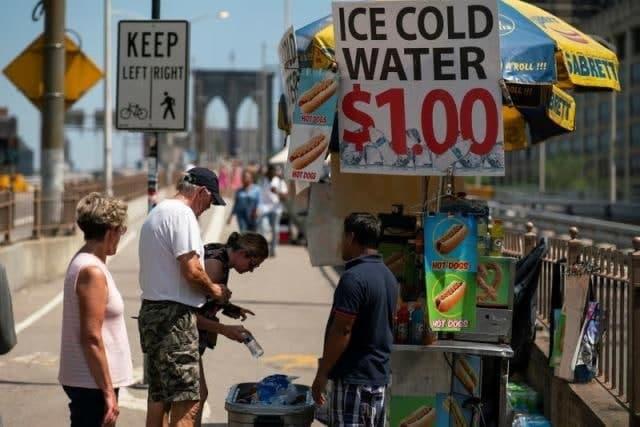VANCOUVER, June 30 (Reuters) - A heatwave that smashed all-time high temperature records in western Canada and the U.S. Northwest has left a rising death toll in its wake as officials brace for more sizzling weather and the threat of wildfires.
The worst of the heat had passed by Wednesday, but the state of Oregon reported 63 deaths linked to the heatwave. Multnomah County, which includes Portland, reported 45 of those deaths since Friday, with the county Medical Examiner citing hyperthermia as the preliminary cause.
By comparison all of Oregon had only 12 deaths from hyperthermia from 2017 to 2019, the statement said. Across the state, hospitals reported a surge of hundreds of visits in recent days due to heat-related illness, the Oregon Health Authority said.
In British Columbia, at least 486 sudden deaths were reported over five days, nearly three times the usual number that would occur in the province over that period, the B.C. Coroners Service said Wednesday.
"This was a true health crisis that has underscored how deadly an extreme heat wave can be," Multnomah County Health Officer Dr. Jennifer Vines said in the statement. "As our summers continue to get warmer, I suspect we will face this kind of event again."
The heat dome, a weather phenomenon trapping heat and blocking other weather systems from moving in, weakened as it moved east, but was still intense enough to set records from Alberta to Manitoba, said David Phillips, senior climatologist at Environment and Climate Change Canada, a government agency.
"In some of these places, their (temperature) records are being annihilated," Phillips said. "It really is spectacular, unprecedented for us."
It was unclear what triggered the dome, but climate change looks to be a contributor, given the heatwave's duration and extremes, Phillips said.
Canadian Prime Minister Justin Trudeau paused to remember the dead during remarks in Ottawa on Wednesday and expressed concern over the fire threat.
"We've been seeing more and more of this type of extreme weather event in the past years," Trudeau said. "So realistically, we know that this heatwave won't be the last."
In Washington, U.S. President Joe Biden said climate change was driving "a dangerous confluence of extreme heat and prolonged drought," warning that the United States was behind in preparing for what could be a record number of forest fires this year.





